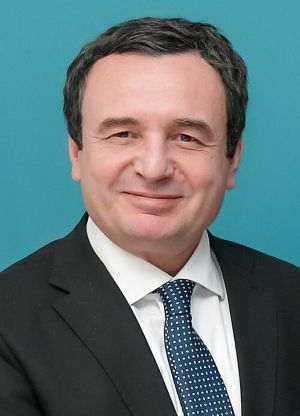European leaders have been insistently repeating lately, the discourse of the faith in Greece and in the government in Athens has been lost, as if they were examples of dependability and morality.
"The most important currency, trust, has been lost", said German chancellor Angela Merkel, Sunday, prior to the meeting with the European leaders, in which a plan of measures for Greece was agreed upon.
Merkel's statement was directed at Alexis Tsipras, the Greek prime-minister, and similar opinions, running the whole gamut of harshness, were expressed by various European leaders, by heads of the European institutions and by IMF director Christine Lagarde.
It is interesting that Merkel never raised the issue of trust when Jean-Claude Juncker became the head of the European Commission, the man known for his shock-statement: "When things get serious, you have to lie".
Mr. Juncker never concealed his opinion that the decisions and the compromises from the EU meetings must be hidden from public scrutiny by lying, if necessary, according to The Telegraph.
In May 2011, he said, in a meeting, that he has frequently had to lie and that the monetary policy of the Eurozone should be discussed in secret meetings, the quoted publication further said.
Another quote attributed to Juncker sounds as follows: "We decide on something, we leave it hanging and we wait to see what happens. If no one makes a fuss, because most people don't understand what has been decided, we keep at it step by step, until there is no more going back".
The morality of a man you can trust!...
Merkel did not raise the issue of trust in 2013 either, when Eurogroup leader, Jeroen Dijsselbloem said, on the same day, that the measure for saving banks using the depositors' money ("bail-in"), applied in Cyprus, did not represent a model for other countries, and that Cyprus was a special case, and bail-in operations would not be applied in other parts of Europe.
When Dijsselbloem announced that the theft of the money of the depositors in Cypriot banks was a model which would be generalized by the European Union, for the saving of distressed banks, the European capital markets shook and the Euro weakened against the dollar.
That same night, the same Dijsselbloem, said that no!, no!, the measures dictated by Europe in Cyprus, were an exception and that they were not a model to adopt for the whole European Union.
Merkel also did not mention the fact that trust in the European Union fell to alarming levels, absent the results after the application of the measures taken by the European institutions.
According to the Eurobarometer study for the autumn of 2014, 37% of the citizens tend to trust the EU, while 50% rather do not trust the EU. The result marks a 6% increase of those who trust the EU, compared to the previous study, but the downward trend after 2007 is alarming.
The study belongs to the poll department of the European Commission, presided by Jean-Claude Juncker.
Since "things have become serious again", we are a bit skeptical that maybe Juncker is lying, again?!
Perhaps the confidence chart does not really show an increase, and instead it has been rigged.
The crisis of confidence in the EU has deepened, amid the worsening of the financial crisis, the debt crisis, the increase in unemployment, the "bail-out" and "bail-in", in Cyprus, as in 2012, the EU got the Nobel Peace Prize.
Under these circumstances, The Guardian noted that in 2013, amid the assignment of the sovereign power to international technocrats, the Euroskepticism has risen to a level which fuels the anti-European and populist measures.
José Manuel Barroso, president of the European Commission in 2013, said that the "European dream" is under the threat of populism and nationalism in the EU.
"At a time when so many Europeans face unemployment, uncertainty and the rising inequality, a kind of «European fatigue» has set on, coupled with a lack of comprehension: who does what, who decides what, who controls what and what we are heading towards", said Barroso, in 2013.
The situation in Greece and the agreement that the European leaders reached Monday morning, which requires Athens a series of austerity measures in exchange for a new rescue program, have caused a wave of criticisms against the European institutions and will be interested to see the following Eurobarometer of EU citizens.
Of course, if it will ever be possible to conduct it rigorously again.
Angela Merkel said that the most important currency, "confidence", has been lost, pointing a finger at Tsipras, deliberately or not ignoring the fact that Juncker spoke in favor of using lies.


















































